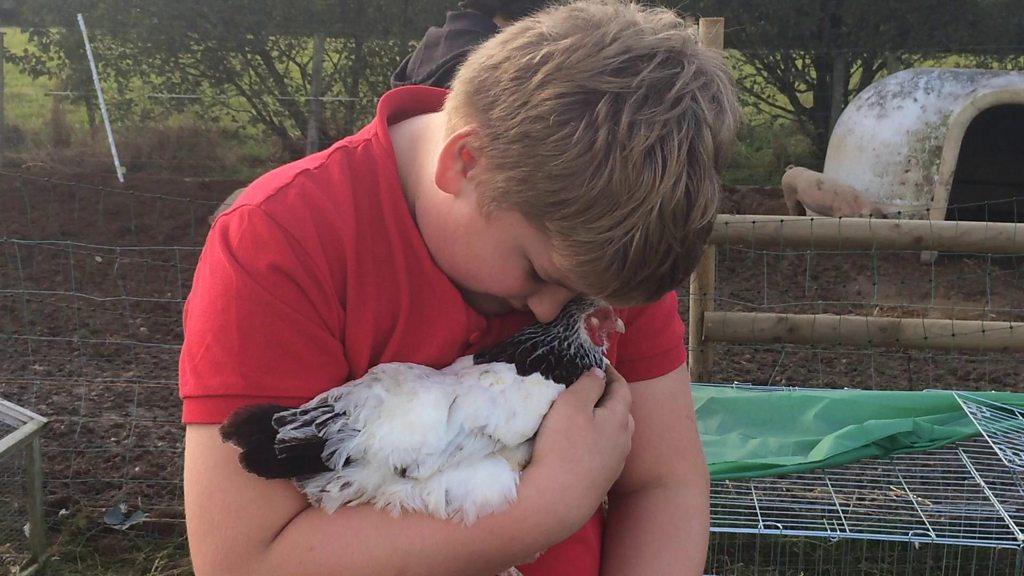The pain of Tourette's: 'I'm always covered in bruises'
- Published
Alice Franklin is one of 300,000 people in the UK with Tourette’s syndrome
"Punching walls is a favourite one of mine. Punching windows. I've broken three windows in the past year. Punching myself in the head, whacking my head against the wall."
Alice Franklin is 25, lives in London and has Tourette's syndrome.
She first started experiencing symptoms around four years ago and says: "I didn't even notice them or recognise them as tics.
"They were opening and closing my mouth and screwing up my eyes and then things deteriorated really quickly, I was shouting, swearing, jerking, shaking - any movement or sound I was doing it."
'Bruising and swelling'
Along with vocal tics such as swearing, Alice has also seen others develop which often cause her harm.
"Slapping myself across the face, banging my head on the table. All of these things are painful, all of these things hurt."
She also experiences "tic attacks" which are sudden bouts of continuous tics which can last minutes or even hours. Her most recent was three days into a new job.
"My whole body was shaking, I was grunting, my head was nodding and it lasted about an hour and a half. They're completely exhausting, where you can't stop moving and it feels like you're trapped in a body that someone else is controlling".
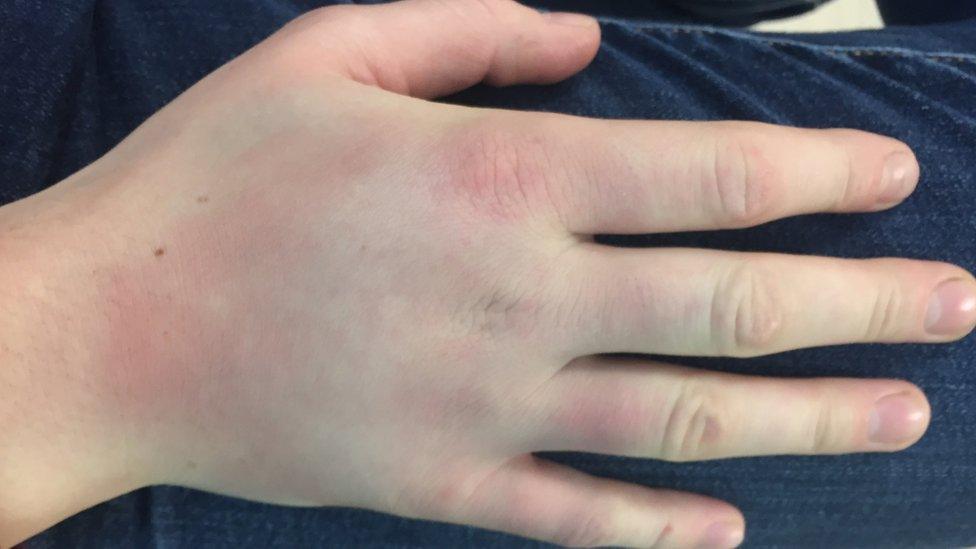
Alice has suffered bruising and swelling from punching things as a result of her tics.
Alice is one of an estimated 300,000 adults and children in the UK who live with the neurological condition, but what causes Tourette's is not clear.
Charity Tourettes Action has discovered that patients are facing long delays in diagnosis, treatment options are limited and there are lengthy waiting times to access the therapies that are available.
Prof Andrea Cavanna is a consultant in behavioural neurology at Birmingham and Solihull Mental Health NHS Foundation Trust.
He told BBC Radio 5 Live Investigates: "Although the exact cause is still unknown, it is thought that genetic mechanisms can predispose individuals to the development of tics, and the role of environmental factors is currently under investigation".
Tics - involuntary sounds and movements - are a key feature of the condition., external
People often associate the condition with swearing or saying socially inappropriate things, but that only affects around 10% of those with the syndrome.
What gets less attention is the pain and discomfort that people, like Alice, experience daily as a result of tics.
'Dark side'
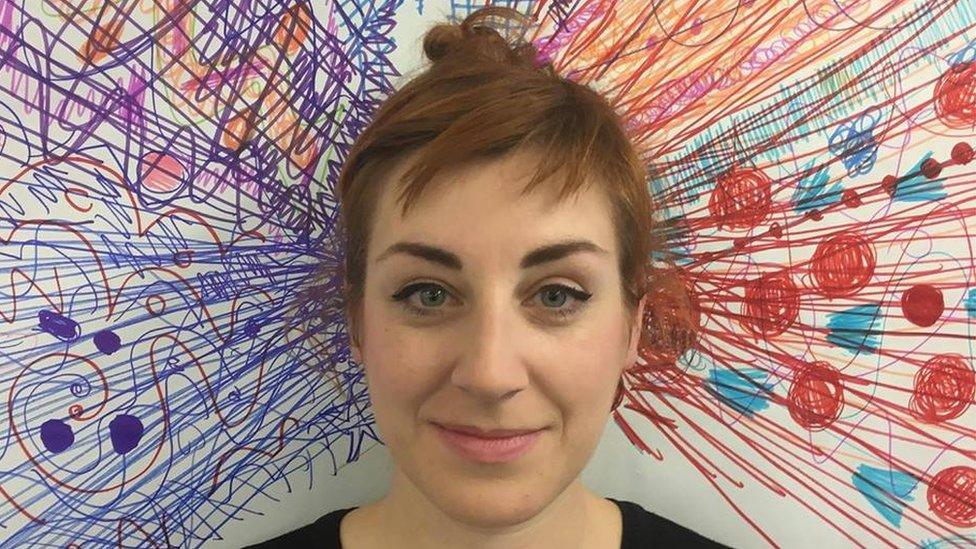
Clair Beckett battled for four years to get a diagnosis.
Clair Beckett, who is 31, lives in Plymouth and is a dance artist.
She was diagnosed with the condition a year and half ago and says she can experience anywhere between 50 and 100 tics a day.
They range from uncontrollable wiggling of her toes and shaking of her wrists, to throwing her head back violently or her knees giving way - causing her to collapse to the floor.
At times she has to use a walking stick and says the wear and tear causes a lot pain to her body.
"I get a lot of repetitive movements that cause strain and nerve damage," she says.
"I've got nerve damage in my right arm, I have real troubles with my neck and I do get really scared sometimes because the tics can be so violent that I'm so worried I'm going to do something really dangerous.
"The pain side and the physical disability that we experience is often on the lowest priority in terms of medical intervention.
"There's a real dark side and a very physical side that people really struggle with day-to-day."

"I get a lot of pain in my back from twisting my spine or popping my chest," says Clair
Long-term damage
The charity Tourettes Action has carried out new research looking into the pain, injury and physical problems caused by tics.
It surveyed its members across the UK, with 86% of the 462 respondents reporting having had tics that caused them pain or physical damage.
The study found some of the injuries or physical problems people experienced included whiplash, broken bones, dislocations, damage to their eyes - because crunching eyes or constant eye rubbing - and nosebleeds from head-shaking.
Others reported long-term damage as a result their tics including stress fractures, torn ligaments, pinched nerves and dislodged discs.
A total of 21% said they had been hospitalised or needed urgent medical care after being injured by violent tics.
"Physical tics are way more of a problem than my vocal tics. I've had cuts, bruising and swelling," says Alice.
"Luckily I haven't broken anything yet, but it's such an unpredictable condition I don't know if one day I'll sustain a serious injury."
Long delays
Dr Seonaid Anderson, research manager for Tourettes Action, said that the average wait for diagnosis from when people have first noticed symptoms has been between one and two years, but some have waited for up to six years.
Dr Anderson added that the issue of pain and discomfort is also an area that has been overlooked.
"It was really quite shocking to discover that this was really quite chronic pain on a daily basis and their repetitive tics were causing them lots of problems in their day-to-day living," she says.
"For other movement disorders, there is perhaps more of an input in terms of helping them manage their pain.
"It seems to be an area that's lacking, you've got Tourette's syndrome and this pain or discomfort is just something you have to live with".
A Department of Health and Social Care spokesperson said it was committed to supporting people with neurological conditions such as Tourette's.
"The NHS long-term plan sets out our intention to improve choice and personalised care for people with long term conditions, as well as to support local areas to tackle unwarranted variation in services".
You can hear 5 Live Investigates on Sunday 20th January at 11:00 GMT or on BBC Sounds afterwards.
- Published20 January 2019
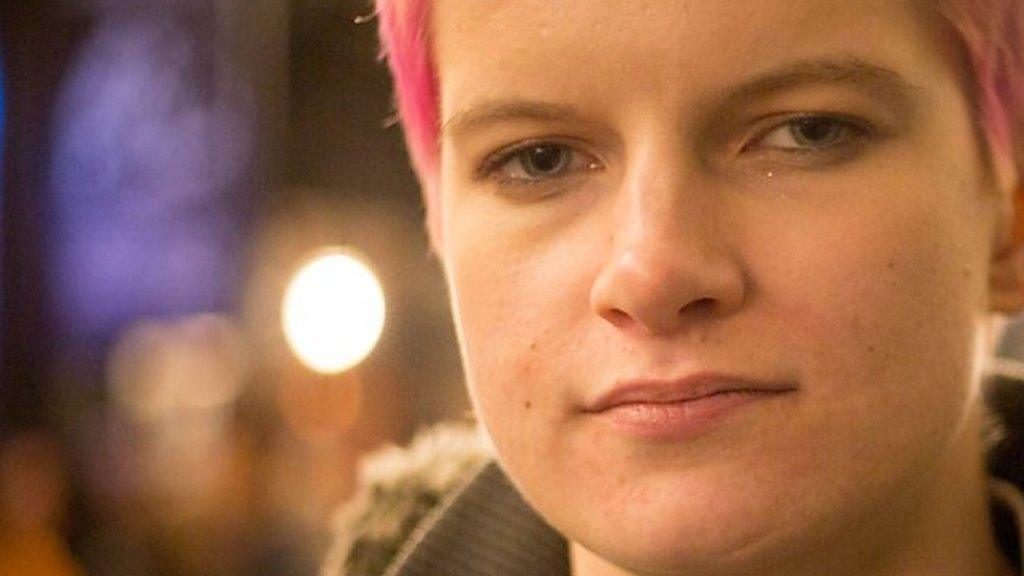
- Published6 June 2018
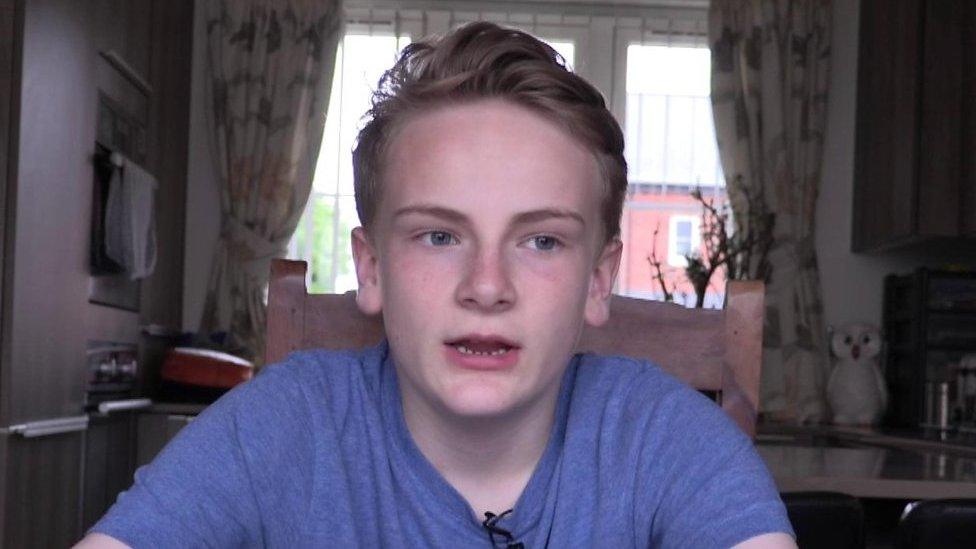
- Published13 November 2018
